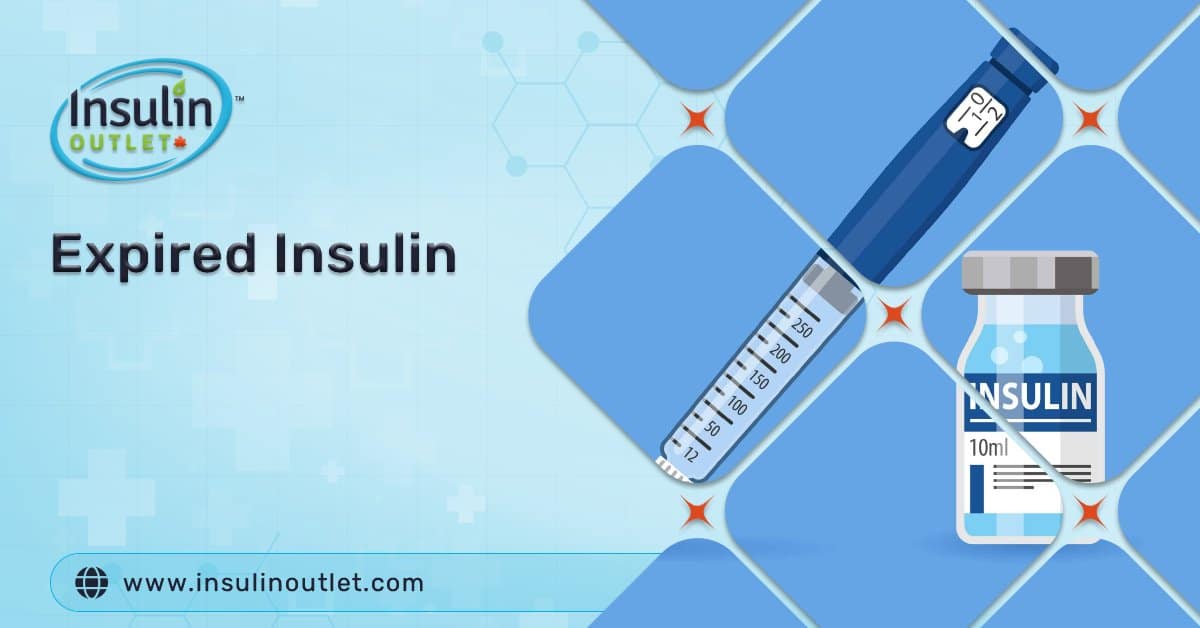
For many diabetic people, insulin is a lifeline. However, what happens when this essential medication expires?
We will shed light on the importance of monitoring insulin’s expiration date and the consequences of using it beyond this period.
Table Of Contents
Toggle- Does Insulin Expire?
- Humalog Mix 25 KwikPens 100 Units
- Fiasp FlexTouch Pens 100 Units / mL
- Apidra SoloStar Pens (100 Units/mL)
- Basaglar KwikPens 100 Units / mL
- What Are the Signs Insulin Has Gone Bad?
- Does Expired Insulin Smell?
- Can You Use Expired Insulin?
- Should You Throw Away Expired Insulin?
- How Long Does Opened Insulin Last Past Expiration?
- How Long Does Unopened Insulin Last Past Expiration?
- How to Prolong Insulin’s Shelf Life
- Handling Insulin Emergencies
Does Insulin Expire?
Insulin has a shelf life just like many other medications. The proteins and chemicals that make up insulin begin to break down and change over time after manufacturing. This can start happening as soon as a vial or pen is first opened.
The rate of decay depends on how insulin is stored. Heat, light, and agitation will accelerate the chemical changes.
Most insulin products sold today have an expiration date set at 1 year after manufacture if unopened. Once opened, insulin vials or pens generally expire after 28 days and should no longer be used.
The slow process of chemical degradation is why insulin has an expiration date. The potency and effectiveness wears down as the proteins and hormones fall apart.
What Are the Signs Insulin Has Gone Bad?
There are several key signs that indicate insulin may have expired or gone bad:
- Clumping or frosting – Insulin should normally appear clear and colorless. If it becomes cloudy, clumped, or has visible white particles or frost-like crystals, this likely means it is expired. The insulin proteins are breaking down and clumping together.
- Color change – Insulin should not have any pink, red, orange, or brown discoloration. A color change means chemical changes have occurred and the insulin has degraded.
- Failure to control blood sugar/hyperglycemia – If your blood sugar levels are unexpectedly high and difficult to control when using that insulin, it could mean the insulin is no longer working effectively. The proteins have broken down so the insulin can’t properly regulate blood glucose.
- Skin reactions at injection site – Redness, itching, swelling, irritation, or pain at the injection site after using that insulin may indicate it has deteriorated. Skin reactions suggest you may be sensitive to the degraded insulin proteins.
Does Expired Insulin Smell?
The odor of insulin, whether expired or not, is not usually an indicator of its potency or expiration.
An opened bottle of insulin has a mild smell due to phenol and m-cresol, two chemicals that keep insulin stable and prevent bacteria growth. This scent may or may not change if the insulin goes bad.
The most reliable way to determine if insulin expired or has gone bad is through visual inspection and monitoring blood glucose levels.
Can You Use Expired Insulin?
While you might be tempted to use expired insulin, generally it’s not recommended by medical experts.
The reason for this is that the properties of insulin are altered when it expires, which means that the drug won’t work as well.
Insulin slowly starts to break down after its expiration date. This means its blood sugar lowering power can get weaker. How fast this happens depends on how insulin was stored. Heat and lots of shaking break insulin down faster.
This means that if you do use expired insulin, your blood sugar levels may not be under control. You could end up having high blood sugar levels and not even know it, which can lead to serious health problems.
Should You Throw Away Expired Insulin?
It is generally recommended to discard expired insulin rather than try to use it. But you should be aware that there is a right and wrong way to dispose of doing it.
You should never flush insulin down the toilet or place it in your normal household trash. Improper disposal of insulin can pose environmental hazards and health risks to others.
For example, insulin discharged into septic systems or landfills can contaminate groundwater and drinking water if not handled properly.
The best way to discard expired insulin is to take it to a pharmacy or medical waste disposal program
Many pharmacies now have medicine take-back programs specifically to prevent prescription drugs from getting into the wrong hands or contaminating the environment.
How Long Does Opened Insulin Last Past Expiration?
Insulin that has already been opened tends to expire much faster than unopened insulin. Once a vial or pen of insulin is opened, it should typically only be used for 4-6 weeks past the printed expiration date.
Proper storage of opened insulin is critical to maintaining its effectiveness. Opened insulin vials or pens should be kept away from extreme temperatures. Avoid keeping them in very hot or very cold conditions, such as direct sunlight or the freezer.
Many medical professionals recommend discarding opened vials or pens of insulin after 28-42 days, even if the printed expiration date has not passed.
This is because the insulin can begin to degrade once exposed to air through the injection site. Small changes in the protein structure of insulin can begin to occur within a month after opening.
The printed expiration date is based on insulin stored in its original unopened packaging. So once a vial or pen is opened, its remaining useful life is shortened considerably.
Don’t rely on the original expiration date. Be sure to discard opened insulin within 4-6 weeks, regardless of the printed date.
How Long Does Unopened Insulin Last Past Expiration?
Insulin that remains unopened in its original packaging may last significantly longer than the expiration date, depending on how it was stored.
An unopened vial of insulin may remain effective for 10-14 months past the printed expiration date if stored properly, while an unopened pre-filled pen generally expires more quickly.
Proper storage is the key to extending the shelf life of unopened insulin. Keeping insulin refrigerated, away from extreme heat and sunlight, helps preserve the medication.
Remember, the expiration dates printed on insulin packaging are conservative estimates by the manufacturer. Real-world conditions like temperature fluctuations and freeze-thaw cycles impact the drug’s potency over time. Refrigeration helps slow this decline in effectiveness.
How to Prolong Insulin’s Shelf Life
To ensure that insulin remains effective for as long as possible, you should take care to store it properly. Here are some steps to follow for proper storage:
- Unopened insulin: Unopened insulin should be stored in the refrigerator at a temperature between 36°F and 46°F (2°C and 8°C). This helps to maintain the potency of the insulin and prevent it from breaking down.
Note: Unopened insulin must not be frozen, as freezing will damage the insulin and render it ineffective.
- Opened insulin: Once opened, insulin vials or pens can be stored at room temperature (between 59-86°F or 15-30°C) and should be kept away from direct sunlight, heat, or extreme cold.
- Travel: When traveling, use a cool pack or insulated pouch to keep your insulin at a safe temperature. Never leave insulin in the glove compartment or trunk of a car where it can be exposed to high temperatures or direct sunlight.
- Inspect before use: Always check the appearance, consistency, and color of your insulin before injecting it. If you notice any changes, such as cloudiness, discoloration, or clumps, do not use the insulin.
- Label your insulin: To avoid confusion and ensure timely replacement of your opened insulin, write the date the vial or pen was first used directly on the container. This way, you can keep track of how long the insulin has been opened, and you’ll know when it’s time to replace it.
Handling Insulin Emergencies
In the event of an insulin emergency, such as running out of insulin or discovering it has expired or been damaged, you have a number of options to consider:
Share:












